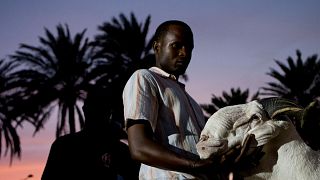Focus Africa
It is a busy day at the Notto farmers’ market, about 70 kilometers away from Senegal’s capital, Dakar.
The fruits and vegetables sold here are mainly at wholesale. And, buyers come from around the country for produce to sell locally on retail in their towns or export.
There has been an increase in harvests, at least for farmers working with the Japanese International Cooperation Agency (JICA) under the Small-holder Horticulture Capacity Building Project (SHEP).
Since JICA intervened in the horticulture campaign, tonnes realised have gone up by tens of thousands.
Dr. Coumba Diouf is the director of National Horticulture in Senegal. He explains, “apart from a little peanut which is a cash crop, an industrial crop, all exported products are horticultural products – fruits and vegetables. To give you an example, in 2012 we were at 56,000 tonnes and today we have reached 106,200 tonnes.”
The farmers under SHEP represent 85 percent of all horticulturalists in Senegal.
Despite government support, there are still a number of challenges they must deal with. Storage infrastructure and inaccessibility to market information are among the constraints they face.
But slowly, things are getting better for SHEP beneficiaries.
Mbele Fall says their produce was left to rot in their farms and they were blocked from selling at their own prices. “Thanks to the SHEP project, we have information on the selling price of our products. We can no longer be misled by some traders. Today we sell our products before harvest.”
Up for over one year now, the initiative has reached 120 people and more farmers want to learn new methods of horticulture.
“What are the productions requested by consumers? For example, potatoes, carrots, onions… At when, at what price, and how much? If the producer has answers to all these elements, he can address these concerns of traders and consumers”, Momodou Kebe, Technical Coordinator, SHEP.
JICA now allows these farmers to anticipate sale of their crops. The idea is to produce armed with information based on market trends and demand, what they call market-oriented agriculture. The initiative revolves around the concept of ‘‘cultivate for sale’‘ which differs from the ‘‘cultivate and sell’‘.
“Already at the Senegal level, you have seen the results and the change in behavior. At the level of Niger, too, we have already met producer groups that have been able to increase their revenues through information they have been able to collect and capacity building thanks to the activities of the SHEP”, Kumiko Takekoshi, Sub-regional Coordinator, SHEP.
They have set a target to reach over 2,000 Senegalese farmers by 2022. This would be a pilot country as they look into expanding around West Africa.
“We are going to install the SHEP approach in Lougar, Saint Louis, Thies and Dakar”, Yoshio Fukai, the Project Manager vows, “but our goal is to extend it throughout Senegal in collaboration with Mrs. Kumiko and the Senegalese Ministry of Agriculture through the agency”.
Senegal is not the only country on the continent covered by the SHEP project. 23 others are working with this Japanese initiative, and their hope is to have more farmers around Africa, adopt the SHEP approach of horticulture.











Go to video
World Bank grants South Africa $1.5B for infrastructure, green energy
11:16
Angola hosts U.S.-Africa summit amid calls to revive trade ties {Business Africa}
01:30
Abu Dhabi hosts first Global South Economic Forum
02:08
Gunman attack in north-central Nigeria: death toll climbs to 150
01:23
Fourth edition of China-Africa Economic and Trade Expo opens in Changsha
02:20
VivaTech 2025: Africa takes center stage with bold AI ambitions